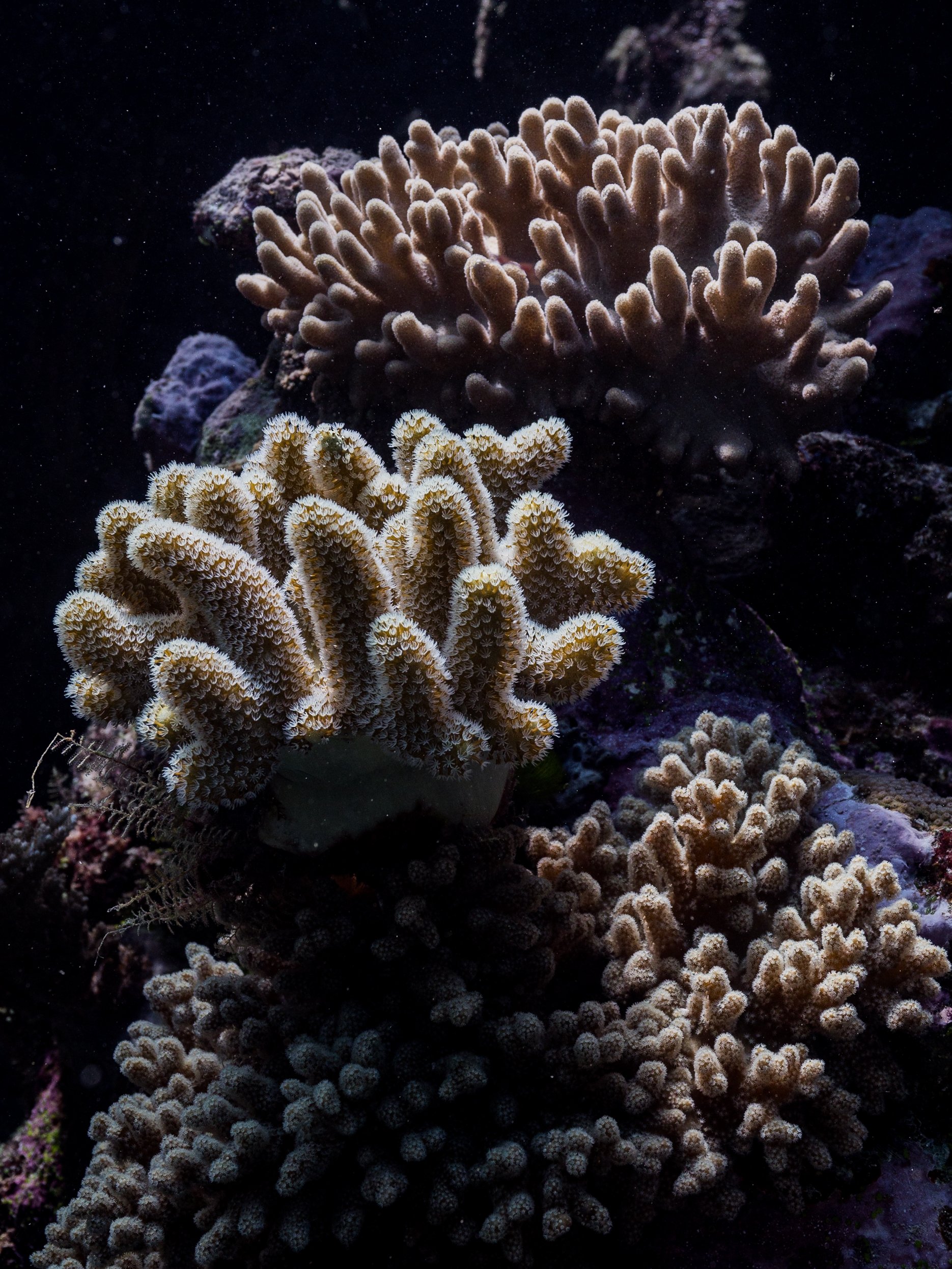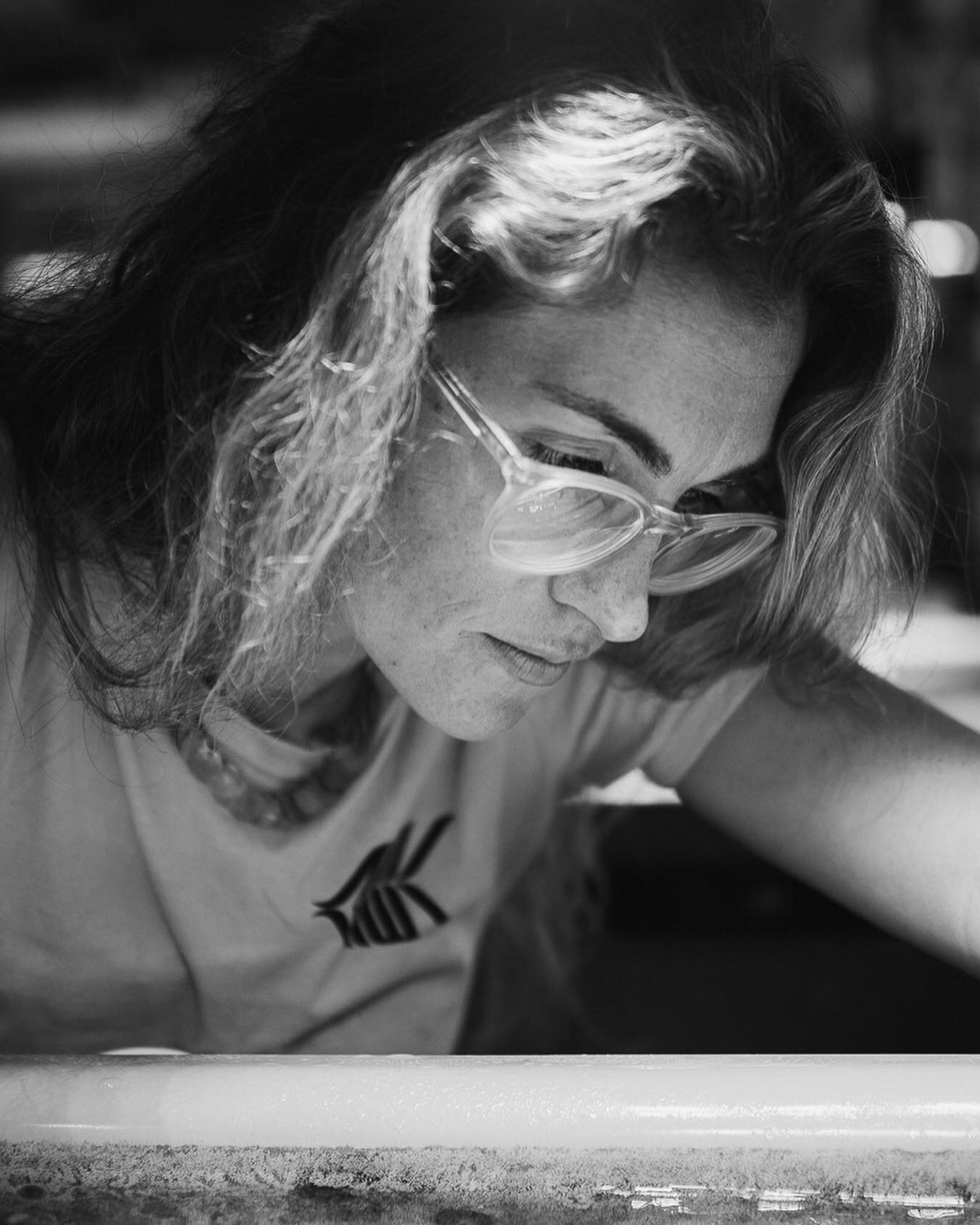
Dr Kate Quigley
Dr Kate Quigley is the queen of the super corals. Kate’s research focuses on investigating heat tolerance in the building blocks of the Reef. By cross-breeding corals from different parts of the Reef, Kate and her team are discovering that it is possible to breed strains of coral that are more resilient to warming ocean temperatures.
To save the Great Barrier Reef, we need to drastically reduce our emissions. But, we also need to learn more about how we can potentially step in to give the Reef a helping hand if we need to down the track, which is why research like Kate’s is so vital.
Kate is clear that her work isn't some techno-fix and that instead, it's to buy time for the Reef whilst we get our carbon problem under control. When we speak to Kate, she is getting ready to head off on a research expedition that is the culmination of about three years worth of work and experiments. Kate and her team will be going to specific reefs that should be home to very heat-tolerant corals.
Kate explains that in previous years when she has gone out to collect corals it's been “almost like hunting in a needle in a haystack.” There are millions of colonies across 3000 different reefs, so finding these more resilient corals is not easy.
Using experiments she has conducted over three years, Kate created a computer algorithm that allows her to find the reefs that are home to more resilient parental coral colonies, that she can bring back to the lab and use to selectively breed more heat-tolerant babies.
We learned all about Kate’s research when we visited her at the Australian Institute of Marine Science recently. Discover more about Kate’s work in her Salt Water Steminists film and interview below.
What is a ‘super coral’?
A super coral is an output of trying to breed corals in specific combinations. Essentially it's a coral that has a certain genetic background that allows it to survive better under higher heat. We're also looking at breeding corals with different traits. Things like higher growth, higher reproductive potential to try and create something that is just a bit tougher.
This isn't something that isn't already occurring on the Great Barrier Reef. For example, eggs and sperm from the far north of the Great Barrier Reef - where there are more temperature tolerant corals - can make their way down to the central and the southern Great Barrier Reef. It just doesn't happen very frequently. These kinds of evolutionary processes occur over very long timescales. We're trying to nudge that into something that happens a little bit faster.
What kind of research have you done to figure out how to breed corals?
There's a natural temperature gradient around the Great Barrier Reef. In the far north, close to Papua New Guinea, it's much warmer. Reefs up in that region are experiencing warmer temperatures day in and day out. We had this thought that if corals are warmer up there, can we can breed some of that heat tolerance into populations that are in the central and the southern parts of the Great Barrier Reefs? I wanted to know how we can do that over and over so that we're getting better heat tolerance for each generation.
So far we've been able to get corals that can survive at high temperatures, temperatures that we generally get during bleaching events by about twenty-six times. We've cranked up the heat tolerance a bit. It's really encouraging that there is a lot of natural capacity to improve heat tolerance in corals.

How would this work on a large scale?
Scalability on something as complex and massive as the Great Barrier Reef is a fundamental question. The Reef is the size of Italy. How can we possibly think that we can affect an ecosystem that big? We are thinking about technological solutions to getting millions of coral babies into different parts of the reef. If it does become something that grows to scale, we're looking at tech solutions to help deliver those kinds of biological units to strategic parts of the reef.
One of the powerful parts about coral biology is that every spawning, they produce millions and millions of their own babies. The idea is that if we needed to, we can produce these baby corals, put them out onto the Reef, and then after a certain amount of time, nature is going to take over and start seeding the Reef naturally.
Is there anything that we should be worried about in regards to scaling something like this?
There are many things that we should worry about when we're looking at any kind of human intervention and in particular genetic interventions.
We're in Australia. We all know the cane toad example.
It's always on the forefront of everybody's mind that not only is tinkering with natural things potentially worrisome, but when you get ecosystems as complex as one like the Great Barrier Reef, it would be hubris to think that we could understand it enough to be able to comprehend how we could affect the trajectory of these complex ecosystems.
If you talk to any scientists, they'll tell you we know less than we actually know. They'll be the first to say, ‘well, we actually need more information on this.’ That's why research is so critical, so we can fill in those gaps to bring down the risk.
A lot of it is about managing the risk where it's appropriate, figuring out the things that we absolutely have to know in order to be okay with any kind of risk. I'm much less willing to roll these things out in the short term because the Reef is still in pretty good condition. Would we ever want to put something out that could jeopardise that? But say we get three more bleaching events, we lose millions more colonies, coral cover drops from 20% to 5%. Our willingness to accept a certain kind of risk changes as systems degrade.
How do you ‘stress test’ corals?
Coral spawning is a really important part of my research year. The kind of experiments that we do during coral spawning often involve what we call ‘stress testing corals’. In order to really understand how strong or resilient they are under more different warming scenarios, we have to put them through some kind of test.
I like to think of what we do with coral larvae is what Nike Labs does with elite athletes. When Nike is trying to figure out what shoes to optimize, they'll put runners on treadmills and they'll hook up different instruments to them and measure things like oxygen saturation and really try to finesse how to get these elite performers even better with some technology.
We do similar things with coral larvae, in that we put them in particular machines in order to measure how well their bodies are performing when the temperature starts to increase.
That allows us to see who the elite athletes in this experimental scenario are. Then we're able to target those elite coral larvae at different life stages and ask the question, why are they so good? How can we make them better?
How do you feel about the future of the Great Barrier Reef?
I'm positive about the future of the Great Barrier Reef. These ecosystems are incredibly resilient. If you look at corals and how they grow and how they reproduce, there is a lot of natural capacity in the system to fight back against stress. We can see that after cyclones - if you give corals enough time to recover, they can.
The problem with global warming these days is that we're getting bleaching events that are happening back to back. So that recovery window for corals is getting shorter and shorter.
If we could give corals just a bit of breathing space, I am confident that they can recover. They may not recover to how they used to look and we need to ask ourselves as a society, are we okay with that? But they certainly will exist in some capacity. Whether they still support important ecosystem functions is to be seen.
What do we need to do to save the Reef?
We're at this critical junction where it's going to take a lot of different methods in order to save this complex ecosystem. I think of it as a trifecta approach. It's going to require strong action on climate change, and what we need to do has been laid out by non-governmental bodies and governments worldwide.
We need to really invest in the tried and true conventional management that's already occurring on the Great Barrier Reef.
We also need to have a toolbox of interventions, which is where this research sits, that looks at ways to rescue the Reef if we need to.
It's not just going to be one person, it's not just going to be scientists. It's not just going to be tour operators, and it’s not just going to be politicians. It's going to require everybody working together to say this is an important priority.
I want to see the conversation change from what we are losing as a society by changing how we live our everyday lives to what are we going to gain by transitioning to different technologies.




